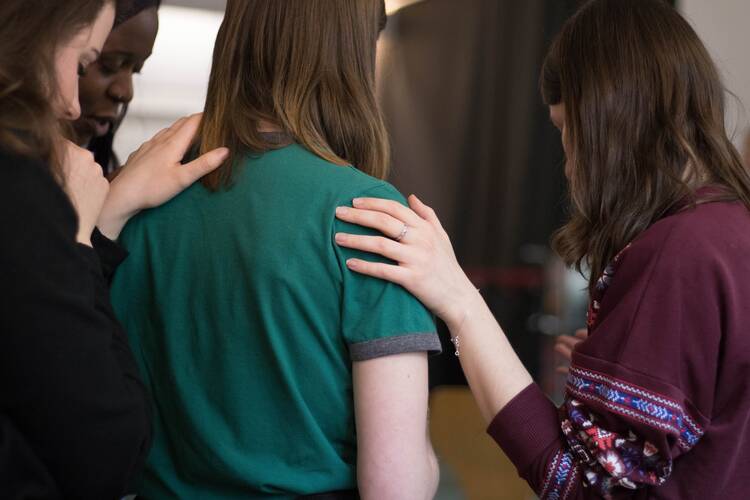To live the Gospel, stand for (and with) the vulnerable.
Less talk and more action! Today’s readings remind us not only to preach the Gospel but to live it. The readings encourage us to prioritize care of vulnerable groups and to avoid corruption, which damages relationships with one another and with God.
Be doers of the word and not hearers only. (Jas 1:22)
What can you do to care for the most vulnerable in society?
How can you encourage others to be more mindful of their actions?
How do you live out the Gospel in your daily life?
The Letter of James addresses a Christian community, offering guidance on how to live out their faith. James states that generous acts done by people are a way that God works in the world: “All good giving and every perfect gift is from above.” When we help others, we facilitate divine care and love in the world.
James speaks of what Christian faith and practice require, emphasizing care for orphans and widows. In the Bible, orphans and widows are often mentioned in tandem as groups afforded intentional human and divine care because of their financial, emotional and legal challenges. Orphans and widows are associated with vulnerable, disenfranchised and oppressed peoples. Isaiah, for instance, criticizes his community for its disregard of people in need, stating that they should “learn to do good; make justice your aim: redress the wronged, hear the orphan’s plea, defend the widow” (Is 1:17). The Letter of James challenges us to reflect and act. Who are the orphans and widows of today? What groups in our society are vulnerable and most in need? Scripture is clear in calling on us to fight for and alongside them.
The Gospel of Mark also speaks to how people live and engage in the world. Jesus interacts with Jewish leaders who are critical of his followers for not following prescribed laws and customs. Jesus is critical of the leaders and their intentions and shifts the discussion to preach on broader human behavior, not just formal religious observance. Jesus condemns acts that corrupt people and inflict harm, such as theft, murder, malice, greed and arrogance. These types of actions, and sin more generally, not only defile the individual and the human-divine relationship but also damage the community.
As the world is filled with much suffering, we are called to action. We should ask ourselves the Vincentian question, “What must be done?” How do we put faith in Christ into practice? Scripture requires support of people who are most in need, offering resources and advocating for changes that will help all people to thrive. Likewise, Jesus’ emphasis on morality reminds us to be mindful and intentional about our actions, doing good and avoiding evil.
This article also appeared in print, under the headline “Live Well,” in the August 2021, issue.









